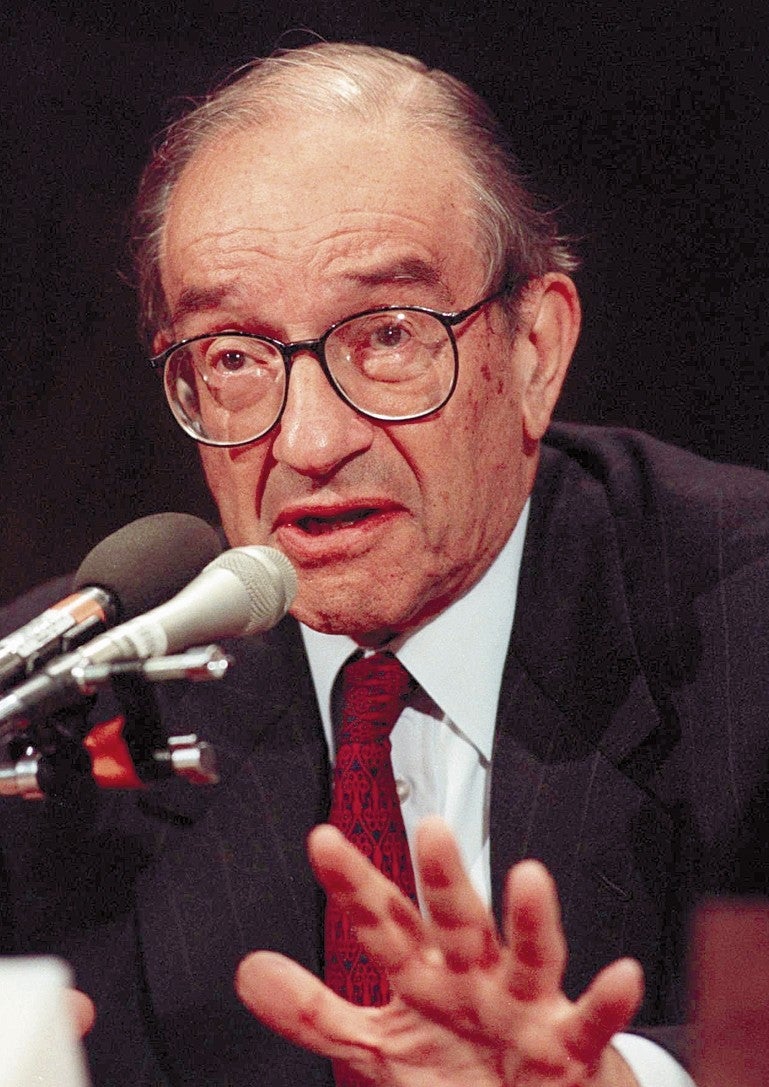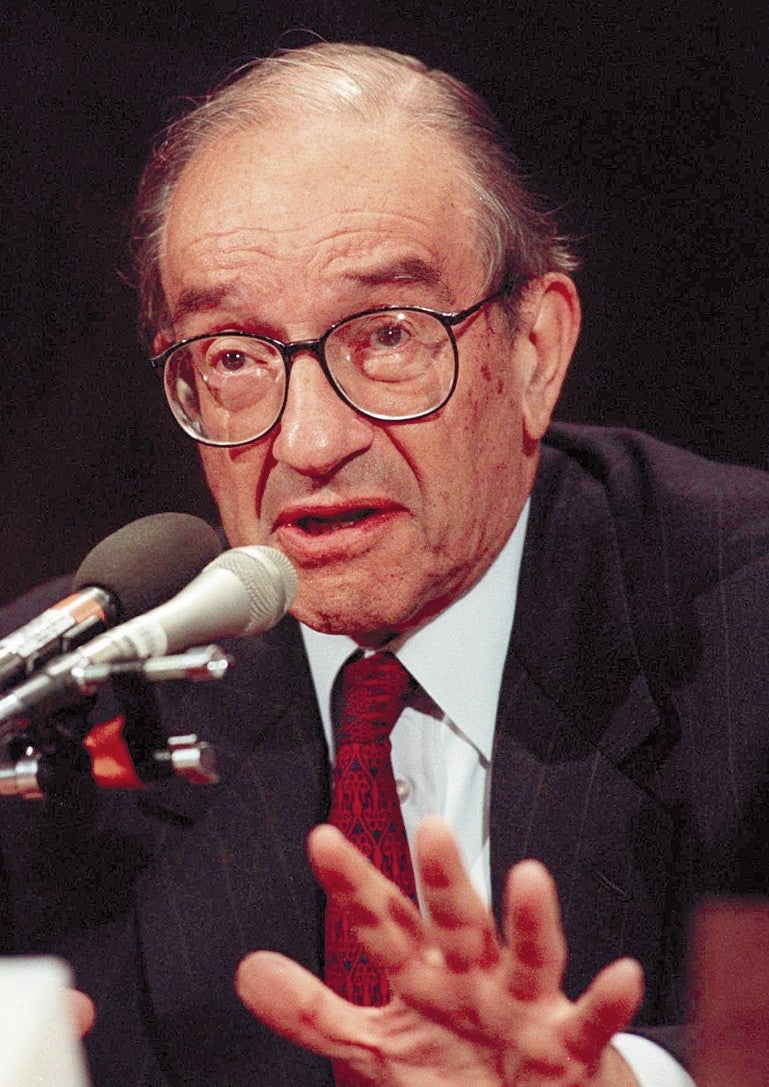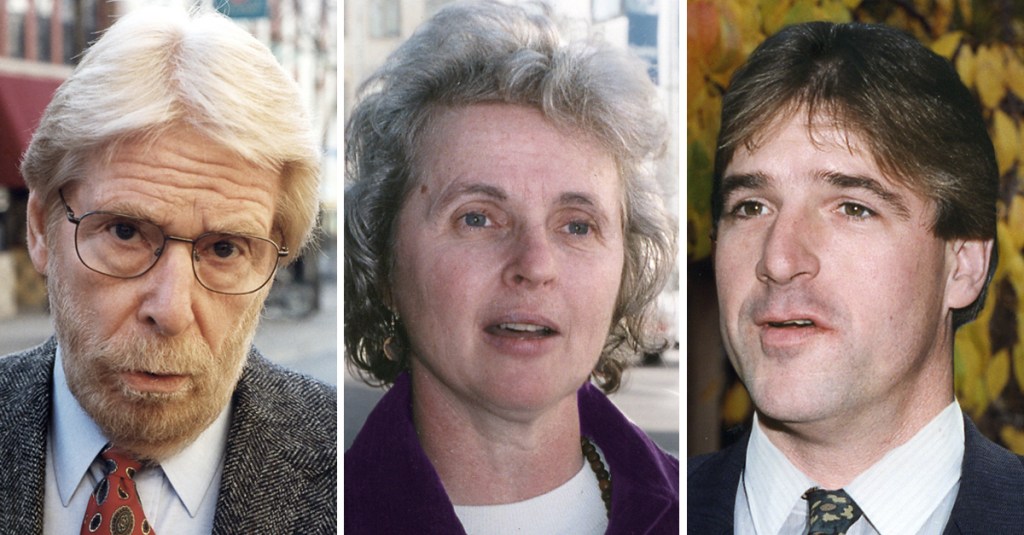WASHINGTON, DC—Testifying before Congress Monday, Federal Reserve Board Chairman Alan Greenspan announced a sharp lowering of his interest rate in his wife.

“It’s just not the same anymore,” a visibly depressed Greenspan told members of the Senate Subcommittee on Economic Affairs. “After 12 years together, things are beginning to severely stagflate. We hardly even talk any more. The mutual fun we once had has greatly depreciated.”
“I was hoping I would rebound strongly after last week’s depression,” Greenspan said, “but the downward cycle has continued. I just don’t know what to do—maybe it’s over between us.”
Burying his face in his hands, Greenspan characterized his years of long-term, heavy investment in the relationship as “low-yield.”
Among the numerous factors in his declining interest rate, Greenspan said, was his wife’s recent inflation. “In the past six months or so, I have noticed rapidly fluctuating weight-gain factors, including significant growth in the hips and thighs,” he said. “Her current rate of expansion is greater than at any time since the weeks before her October ’87 crash diet.”
Asked what the underlying reasons for his wife’s inflation might be, Greenspan posited that she had “renewed her overreliance on cream sauces.” Further, he said, “The Appetizer-Per-Dinner ratio (APD) is up to .93, while the corollary formula of Salads-Per-Appetizer (SPA) has continued its precipitous decline. And midnight snacks are now an everyday occurrence.”
But insiders like Lucille Strock, a Washington socialite and close friend of the couple’s, said that Greenspan’s wife, NBC News correspondent Andrea Mitchell, “has always turned to food when she gets depressed,” and noted that Greenspan “has been so busy with running the Federal Reserve Board lately that he hardly ever gets to see her, and it’s made her feel lonely. I think she’s been trying to get his attention.”
Despite Greenspan’s complaints about Mitchell, many of the fed chief’s close advisors believe that the source of his malaise lies within himself.
“Alan is going through a ’zero-growth’ phase of his life right now, and he is unfairly placing the blame on Andrea,” said Alice Rivlin, vice chair of the Federal Reserve Board. “His prolonged hairline recession and recent 71st birthday have made him feel like the end of his life is near, resulting in severe emotional fluctuations. What Alan needs to do is find a way to artificially stimulate personal growth—perhaps he could take up a hobby, like jogging or stamp collecting.”
Following the Greenspan announcement, the Dow fell more than 100 points Monday, a drop many Wall Street watchers attribute to investors’ decreasing confidence in the fed chief’s ability to find lasting happiness.
“I think people sense that this is more than just a correction, more than a long-overdue adjustment following a period of unusually high spirits for the fed chief,” Prudential Securities vice-president Walter Selkirk said. “People are concerned that this is the start of a long, deep depression.”
In an effort to allay public fears, U.S. Treasury Secretary Robert Rubin held a press conference Tuesday, asserting that Greenspan’s emotional downturn was “perfectly natural and in no way indicative of an imminent personal or marital collapse.”
“I want to assure everyone that Mr. Greenspan’s life is running smoothly, and he is fully committed to his merger with his wife,” Rubin said. “He’s just hit a slight bump in the road. As long as he maintains confidence in himself, everything will be just fine.”







